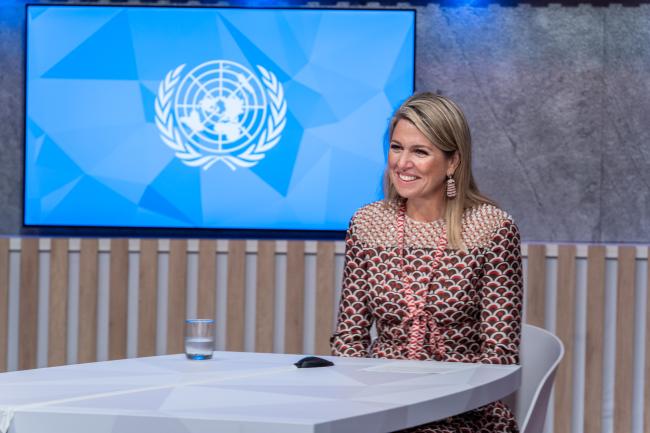
Her Majesty Queen Máxima of the Netherlands will visit Morocco in her capacity as the United Nations Secretary-General’s Special Advocate for Inclusive Finance for Development (UNSGSA) on 20-23 March 2023. The purpose of the visit is for the UNSGSA to extend support to further advance progress that Morocco has made in financial inclusion in recent years.
In meetings and discussions, the Special Advocate will focus on key investments to help kick start Morocco’s digital payments market, notably to serve as an on-ramp to the formal financial sector for traditionally undeserved groups like women and small merchants. The UNSGSA will also discuss how Morocco’s fintech sector can further progress—including support for technology that can help address risks, costs, and geographic barriers to financial services in Morocco.
Queen Máxima will also highlight inclusive green finance, particularly the role of financial services to build resilience and support adaptation from climate risks. Morocco is considered a leader in sustainable finance, including the publication of a roadmap for aligning Morocco’s financial sector with sustainable development.
According to the World Bank Global Findex (2021), 44% of Moroccan adults have access to a formal financial account (either from a formal financial institution or a mobile money provider). This represents a positive increase from 29% in 2017. Morocco is targeting a financial inclusion rate of 50% in 2023 and 75% in 2030, as outlined in its National Financial Inclusion Strategy (NFIS), launched in 2019 and co-led by the Bank Al-Maghrib (the central bank) and the Ministry of Economy and Finance.
Still, approximately 15 million adults in Morocco remain unbanked. The financial inclusion of traditionally underserved segments remains an important issue in the country. For example, 56% of men compared to only 33% of women have an account in 2021. While these represent increases from 2017 when 41% of men and 17% of women had accounts, it means the gender gap of 23 percentage points remains unchanged in that time. Meanwhile, just 6% of adults in Morocco report owning a mobile money account.
On the first day of the visit, the UNSGSA will conduct a client visit in the vicinity of Casablanca, where she has an opportunity to meet with entrepreneurs and users of financial services to hear their firsthand experiences—notably the benefits and challenges to building better financial health and resilience.
On the second and third days of the visit, the UNSGSA will be in both Casablanca and Rabat, to conduct a final client visit, as well as to meet with key leaders in the public and private sector to discuss opportunities to support and collaborate on inclusive finance in Morocco. This includes bilateral meetings with Head of Government Aziz Akhannouch, Secretary-General of the Government Mohamed El Hajoui, Economy and Finance Minister Nadia Fettah Alaoui, Industry and Trade Minister Ryad Mezzour, Delegate-Minister to the Head of Government in charge of Digital Transition and Administration Reform Ghita Mezzour, Bank Al-Maghrib Governor Abdellatif Jouahri, and Moroccan Capital Market Authority President Nezha Hayat.
This will be Queen Máxima’s first visit to Morocco as the Special Advocate. Partners from the UNSGSA’s Reference Group supporting technical work on the upcoming visit include the Alliance for Financial Inclusion (AFI), the Consultative Group to Assist the Poor (CGAP), and the World Bank Group.